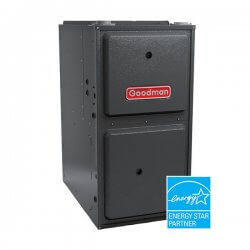
As one of the leading HVAC companies in St. Louis, we often get asked: “What is better, propane vs. natural gas?” Both fuels have their uses, but as a consumer, it is important to understand their differences. When you are thinking about propane vs. natural gas for fueling your home or HVAC system, it is good to know what each fuel is exactly. Natural gas is made up of propane, butane, ethane, and methane. Propane is a component of natural gas but is isolated and sold individually. Another difference between propane vs. natural gas is in units sold. Natural gas is sold in cubic feet, while propane is sold by the gallon.
Still wondering about propane vs. natural gas? The handy list below should help, but you can always call us at 314-993-1110. As St. Louis heating and air conditioning experts, we are here to help you with any heating and air conditioning questions.
Some of the Similarities and Differences of Propane vs. Natural Gas
Seeing as propane is a fundamental part of natural gas, it probably comes as no great surprise that they have quite a few similarities. For example, both gases are very clean burning fuels that are considered environmentally friendly fuels. We put together the following list to help our customers better understand which fuel is right for them.
Take a look at the comparisons of propane vs. natural gas:
- Price – While both fuels are affordable, natural gas tends to be cheaper than propane, although not by a very large margin.
- Burn Rate – British Thermal Units (BTUs) measure the output of heating from burning a fuel. Propane has double the stored energy of natural gas, meaning that its BTU output is larger for the same amount. Furnaces that burn 100,000 BTUs in an hour will use 98 cubic feet of natural gas, while only burning 40 of propane.
- Best Efficiency – Energy efficiency is important to homeowners. While natural gas is the cheaper option, propane wins out for efficiency. When it comes to propane vs. natural gas, the BTUs contained in propane offer a much more energy efficient fuel.
- Safest Bet? – Both of these fuels are very safe to use for home heating systems. That being said, natural gas is lighter than propane, meaning it dissipates into the air much faster. This means if there is a leak or a spill, natural gas will not linger and present a hazard as much as propane.
Are You Thinking of Making a Switch?
We have covered some of the pros and cons of propane vs. natural gas, but what if you are thinking of making the switch from one to the other? Be sure to consider aspects such as the install/removal of gas lines, converting your existing appliances, and fuel storage (propane). All these can impact the cost of changing fuels. It is also important to note that in some cases one fuel source or the other might not be an available option. Therefore, switching will not be possible.
If you’re Considering Propane vs. Natural Gas for Your Home, Call Us!

At Galmiche & Sons, our job is to make sure your house is warm throughout the cold St. Louis winters. If you require heating and air conditioning services or would like to learn more about keeping your home warm with an energy efficient HVAC system, give us a call at 314-993-1110.









